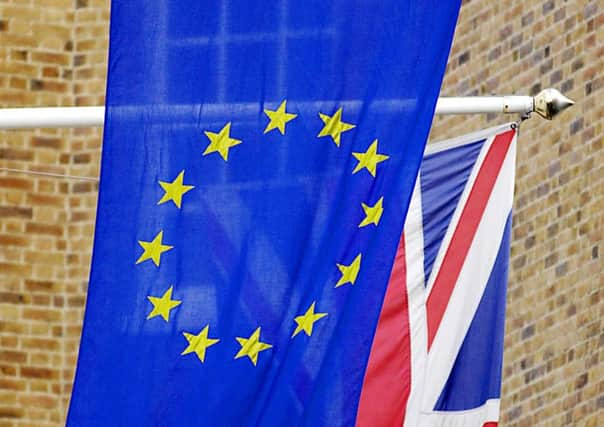YP Comment: Can PM square Europe circle? Cameron fires the starting gun


However the devil will be in the detail that has still come to light. There will now be two weeks of intense diplomacy before a revised deal is put to a summit of European leaders – Poland, for one, remains hostile to any proposals that might, restrict the welfare entitlements of migrants. This is not yet a done deal and it remains to be seen if Mr Cameron’s safeguards will work in practice.
Yet, given Mr Cameron himself says this issue is vital to the future of the country, he should have made a statement to Parliament where he could have been questioned by MPs. On this, Jeremy Corbyn was right when he used his urgent question in the Commons to lament the PM’s absence when these negotiations are supposed, ironically, to strengthen the sovereignty of Parliament and lessen the EU’s grip on UK policy-making.
Advertisement
Hide AdAdvertisement
Hide AdAs such, it remains imperative that voters are given the details that they require so they can make an informed decision about Britain’s future rather than those glib soundbites which appear to constitute debate in 21st century politics. And it’s also important to involve all sections of society. For, while there remain a vocal number of voters who took part in the 1975 referendum and who believe that the EU is a betrayal of Britain, younger generations are more international in their outlook, have grown up with their country being at the heart of Europe. How this proverbial circle is squared is now the biggest question of all as battle commences.
People power and devolution deals
THERE is no “one-size-fits-all” solution to devolution – what works in Greater Manchester may not work on this side of the Pennines where the political and economic landscape is very different, and where local authority leaders in West, North and East Yorkshire are still unable to reconcile their differences so that this region can speak, and act, with one voice on the big issues facing the county.
Yet this impasse, as the West Riding councils finalise their own plans for self-governance, gives credence to today’s Parliamentary report which says that the Government – and town hall bosses – have failed to engage with the public. It is a valid criticism. There is disquiet at the extent to which George Osborne is imposing elected mayors when voters in Leeds, Bradford, Wakefield and Sheffield rejected the concept in a referendum on 2012 while West Yorkshire’s politicians and officials seem very intent on protecting their personal fiefdoms at all costs.
However, if the political elite actually had the courage to ask Yorkshire taxpayers for their views, they would hear the clamour for politicians to work together for the greater good. There would also be deep scepticism over any additional tiers of bureaucracy, and the implications for the public purse when there are legitimate concerns about the burgeoning cost of local government – can Leeds, for example, continue to justify the expense of 99 councillors?
Advertisement
Hide AdAdvertisement
Hide AdIf and when a devolution settlement for Yorkshire is signed off, it will only work if it carries public support from the outset. And that means local taxpayers – the most important people of all – being convinced that any deal will, in fact, work to their advantage. Much still needs to be made before this point is reached.
Taken for a ride: End of the line for orange train tickets
GIVEN that passengers cannot be guaranteed the cheapest fares when they book their train travel, how will the advent of so-called m-Tickets using the latest smartphone technology rectify this? It’s a profound question after the railway industry signalled the end of the traditional orange paper ticket in the name of efficiency and convenience.
Yet, given how supermarket self-service checkouts made cashiers even more indispensable, it’s not hard to envisage the potential chaos at the ticket barriers. What happens if there has been a technological glitch? And what about those people who do not own one of these all-singing, all-dancing phones which so control the lives of users?
Perhaps there will be a new-found respect for long-suffering ticket office staff. For them, digital technology means it could be the end of the line when it comes to their jobs.